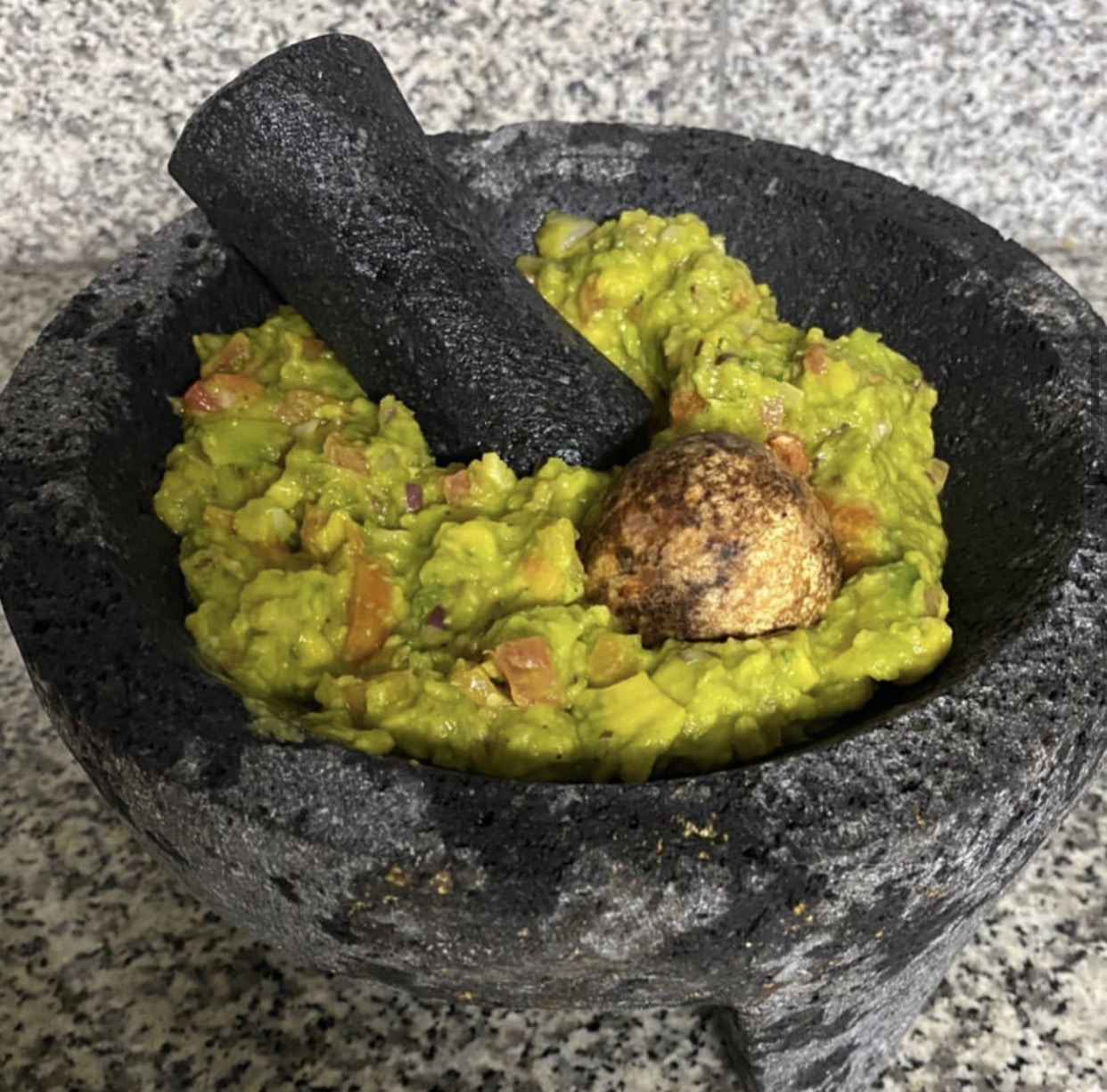“I always felt I was a nurturer, I always loved to feed people. But if you are able to be nurturing, to allow sustenance with grace and to do it creatively — what a gift that is,” she says. “My mission is to make life and living more beautiful and delicious for others.”
If you google Margarita Forés you’ll find her name in either of two prestigious lists: Asia’s Best Chefs or Asia’s Best Dressed. Born into a prominent Filipino family — her grandfather was a sugar and real estate tycoon — Margarita has been attending state dinners as well as catering them. But when you meet Margarita, it is neither the renowned chef nor the fashionista that greets you. Warm, modest, and entirely approachable, Margarita, 61, is foremost a family oriented, twice cancer survivor, proud Filipino. For Margarita, food is ultimately a gesture of care:

Restaurateur Serving Italian and Filipino Cuisine
When Margarita talks about food she tends to get very romantic, using words such as nurture, creativity and beauty — you’d almost forget that she works in one of the world’s most cut-throat industries, currently navigating through a pandemic. She heads several restaurants in her native Philippines. There’s the popular and affordable Italian eatery Cibo, which counts 16 outposts all over the country; the upscale champagne bar Lusso; as well as Grace Park, delivering Italian and Filipino dishes in a farm-to-table approach — all that on top of her catering business which has served the likes of Obama and Prince Albert of Monaco in their visits to the country. Before Covid struck, she was thinking about a new fine-dining concept and was about to open another Cibo outpost in the nearby province of Negros. “Now, though, we have to rethink the restaurant industry and take care of our staff. I have been working with food for the last 30 years and still I feel that I can never say I know it all,” she says. “We don’t know what the future looks like; we have to just roll with the punches.”
From the Philippines to New York City
“Rolling with the punches” is an expression Margarita uses a lot — and indeed her life went through a series of turnarounds which required a great deal of adaptation. As a very young girl, her family was forced to flee the Philippines due to the establishment of the Marcos dictatorship, settling in New York City for 15 years. “We arrived in New York in December 1971. Winter was a physically traumatizing experience for my sister, brother, and I. Apart from the weather, the entire scene in New York was so different from our very nurtured and sheltered upbringing in the Philippines,” she recalls. But soon enough Margarita adapted to the city’s beat. At the time, New York was home to everything radical, avant-garde, and cool, and Margarita found herself, via her sociable mother, at the very heart of that arena: “My mum was very much into the whole Studio 54 scene. Me and my siblings were very young at the time but we did get exposed to all of that,” she recalls with a mischievous smile.

“The whole Italian food scene really left a mark on me”
Despite the glamour around her, it was the string of authentic and modest Italian cafes, recently-established by the wave of Italian immigration to the city, which captivated Margarita the most: “I was a young girl and very impressionable; the whole Italian food scene which was starting at that time really left a mark on me, and I tried to cook at home what I was eating in those places,” she remembers. As a teenager, she would host dinners for friends in her grandparents’ home upstate, inspired by everything she was experiencing. “This was at the time Martha Stewart launched her first book and everyone wanted to be Martha,” she laughs. “The men in my family would bring the ducks they had hunted, and we would set the table with candles and leaves that had fallen from the trees outside, and all those wonderful autumnal colors. New York was an immersion, and such a good time.”
“I wasn’t ready to give it all up when I went back to Manila”
From talking to Margarita, I suddenly become aware of how often we dismiss the more carnal pleasures as superfluous — especially when the world commands our focus on big, complex issues. While living in pure hedonism is surely meaningless, going through life without these pleasures is just as absurd. Plus, in times of hardships, nurturing our bodies — be it by eating a sumptuous piece of chocolate cake, wearing a nice shade of lipstick, or taking a nap — can go a long way. It might not solve our problems, but it surely makes the battle a little more bearable, perhaps even enjoyable.
When her family moved back to the Philippines in 1985, food and cooking were already an established passion and hobby in Margarita’s life, and she had been cultivating an Italian love affair for years. “Oh my god, I wasn’t ready to give it all up when I went back to Manila. I wanted to see what this passion was about,” she says. With an accountancy degree, and no family recipes up her sleeve (“Oh, no — my mum was never the type that would cook for us,” Margarita says, laughing.), the 25-year-old Filipino girl set out to Florence to learn Italian cooking, nona style.

“As soon as I arrived in Florence, it felt so right. I felt like a homing pigeon”
Margarita describes her months in Italy as some of the most defining in her life and later career. Opting to learn from three signoras, rather than fancy cooking schools or institutions, meant she had a truly authentic experience of the country and its culture. “As soon as I arrived in Florence, it felt so right. I felt like a homing pigeon. The signoras would teach from their own homes, and take me out on market trips and restaurant visits. Plus, I had off-time on the weekends where I would go to Rome or Milan and learn about the regionality of Italian cuisine,” she remembers. Most of all, what she took from Italy was a philosophy that has guided all her endeavors since: respect for the ingredients.
Rolling With the Punches, Seeking Italian Ingredients in the Philippines
What grows in the Mediterranean isn’t always found, or found in the same quality, in the tropical rainforests of the Philippines — so when Margarita returned from Italy eager to put into practice what she had learned, she was forced to roll with the punches once more. “Take Italian tomatoes versus Filipino tomatoes. We use tomatoes in the Philippines to sour things; the soil is very acidic. They aren’t sweet like the ones in Italy,” she explains. “The challenge was to find ingredients that would allow me to do these dishes here.” It quickly dawned on Margarita that what seemed like a limitation was, in fact, an opportunity. Local flavors could sometimes be used to substitute Italian ones without compromise to the integrity of the recipe, nor disrespect to the uniqueness of each ingredient. “It was a huge opportunity for me to create new things. I don’t like to use the word fusion to describe my food, it’s more adapting. Interpreting and translating,” she says. “It was also a wonderful chance for me to showcase Filipino cuisine to the rest of the world.”

Empowering a New Generation of Filipino Chefs
As I find out from Margarita, the Philippines is an incredibly unique country. The over-seven-thousand-island archipelago is home to some of the world’s biggest biodiversity and is a true melting pot of influences and cultures, brought over from Spain, Mexico, and Peru during colonial times as well as neighboring Asian countries more recently. “We are the only Latin nation in Asia, and we were ruled by the Spaniards via Mexico,” explains Margarita. “We only became a country in 1945. It makes it a little more challenging for us to develop our own sense of identity perhaps, but we might as well welcome that uniqueness.” With her food, Margarita has been doing just that — welcoming the uniqueness of her country and showcasing it on a world stage. In 2016, Margarita was named Asia’s Best Female Chef by a renowned listing and in 2019 UN Ambassador to Gastronomy. Back home, Margarita has also been empowering a new generation of Filipino chefs — in a developing nation, one cannot underestimate the impact of a woman of Margarita’s background choosing to stand behind the stove. On a personal level, Margarita is an inspiration through her vivacity and optimism: her business has suffered its blows and she has twice survived cancer yet her smile has endured all the way. “I am 61 and, in spite of having two health challenges in my life, my hair is still jet black,” she jokes.
Staying Positive and Light-Hearted Through Life’s Challenges
Before my conversation with Margarita, I had prepared questions about the impact of the current crisis on her business and about the role of women in the industry, but our conversation, instead, was much more light-hearted. It took twists and turns through ’80s New York parties, the history of the Philippines, and the country’s mouth-watering national dishes. Margarita reminded me that, regardless of our situation, not all has to be grave and serious: “Everyone always says Filipinos go through the biggest challenges and always manage to come out with a smile. During the Yolanda storm that hit us and devastated a huge part of our country, people took notice of the Philippines; everyone had a chance to see how beautiful and resilient the people were,” says Margarita, with a smile. “You need to roll with the punches and make the best of the situation.”
LEAVE A REPLY
The ideas expressed here are solely the opinions of the author and are not researched or verified by AGEIST LLC, or anyone associated with AGEIST LLC. This material should not be construed as medical advice or recommendation, it is for informational use only. We encourage all readers to discuss with your qualified practitioners the relevance of the application of any of these ideas to your life. The recommendations contained herein are not intended to diagnose, treat, cure or prevent any disease. You should always consult your physician or other qualified health provider before starting any new treatment or stopping any treatment that has been prescribed for you by your physician or other qualified health provider. Please call your doctor or 911 immediately if you think you may have a medical or psychiatric emergency.
AUTHOR

We will never sell or give your email to others. Get special info on Diet, Exercise, Sleep and Longevity.

Bravo!